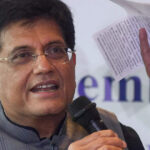During a recent rally in Ranchi, Jharkhand, Congress leader Rahul Gandhi accused Prime Minister Narendra Modi and the BJP of systematically undermining democratic institutions like the Election Commission (EC), the Central Bureau of Investigation (CBI), and the Enforcement Directorate (ED). Speaking at the Samvidhan Samman Sammelan, Gandhi alleged that the BJP’s control over these institutions poses a threat to India’s Constitution and democratic framework.
Gandhi highlighted concerns about caste representation and the suppression of marginalized communities, emphasizing the Congress party’s commitment to conducting a caste census and removing the 50% cap on reservations. He further criticized the BJP for what he described as a hollowing out of the Constitution, claiming that it prioritizes the interests of a select few industrialists over the broader population. He also accused the BJP of cultural erasure, citing their portrayal of tribals as “Vanvasis” and their marginalization in key societal roles, from government to corporate leadership.
Key Points from the Rally Address
The Congress leader’s speech in Jharkhand focused on several critical issues:
- Questions about the independence of investigative agencies
- Concerns regarding electoral processes
- Discussion of federal-state relationships
- Commentary on economic policies and their impact
- Focus on tribal rights and local development issues
Analysis of Institutional Framework
Understanding the role and independence of key institutions:
Election Commission
- Constitutional mandate and responsibilities
- Historical evolution of election management
- International standards for electoral bodies
- Mechanisms for maintaining institutional autonomy
Investigative Agencies
- Structural framework of CBI and ED
- Legislative provisions governing operations
- Oversight mechanisms and accountability
- Historical context of institutional independence
Impact on Democratic Processes
The ongoing debate raises several important considerations:
- Balance of power between institutions
- Safeguards for democratic principles
- Role of opposition in democratic framework
- Importance of institutional credibility
- Public trust in democratic institutions
Broader Implications for Indian Democracy
The discussion extends beyond immediate political rhetoric:
- Need for institutional strengthening
- Importance of checks and balances
- Role of public discourse in democracy
- Impact on federal structure
- International perspectives on democratic institutions
This political discourse highlights the continuing evolution of India’s democratic framework









